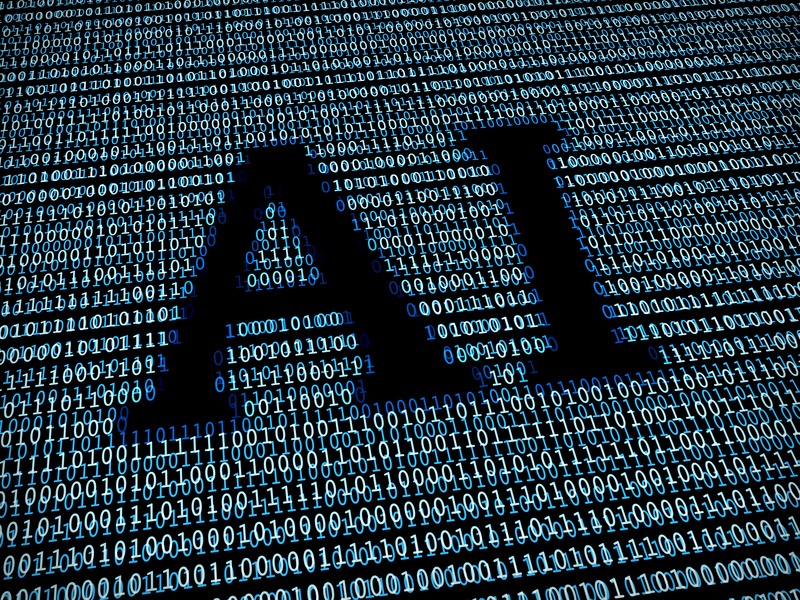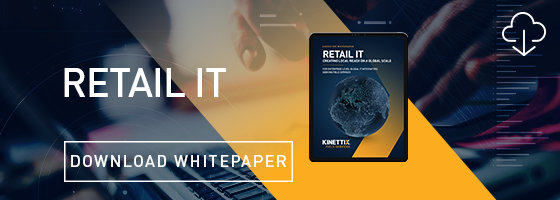eMarketer predicts that 35.6 million people will use voice-activated personal assistants, like Amazon Echo, by the end of 2017, a figure that represents a 129 percent year-over-year jump. While that's hardly equivalent to the popularity of a smartphone, the adoption of personal assistants does indicate a growing shift that retailers must deal with: AI devices.
Brush up on retail uses of AI and its consequences with these 5 things retail IT service providers should know.
1. AI Can Replace a Lot of Human Labor
Within retail, a great amount of employee time is spent on activities that aren't strictly selling, such as stocking inventory or searching for products. AI can accomplish a lot of these non-selling objectives in stores and warehouses, which leaves retail personnel more time to devote to customer service.
On the IT side of things, this means expanded oversight — more work, rather than less. Where IT wasn't involved in something like a store layout, because it was always handled by humans, IT service providers may become involved with this task to support AI.
2. AI Means More Data-Driven Insights for Retailers
The cultural norm in the retail industry is to rely on seasonal trends and intuition or insight to make decisions about what's next. AI enables a wealth of data about transactions, customers, and shopping behavior, for increased data-driven insights.
Retailers can learn what products customers viewed and what they ultimately bought, then use learned information to modify a store layout or make better purchasing decisions. For retail IT service providers, this means more time spent managing your data and running reports.
3. Next-Generation Chat Bots Will Deliver Superior Customer Service
Online shoppers already have the option to interact with a chatbot; however, the pre-programmed responses hardly count as AI. In the near future, chatbots with machine learning capabilities will be able to provide more personalized service, acting as virtual shoppers or customer service agents rather than bots.
AI bots can sift through information in your database to deliver the perfect product for a customer or find an answer to a question much faster than customer service staff, increasing efficiencies and customer satisfaction.
Retail IT service providers should be prepared for the widespread adoption of these next-generation chatbots by retailers who want to offer the best in customer service.
4. Omnichannel is Coming (If it Isn't Already Here)
A survey from IDC suggests that 30 percent of retailers plan to switch to omnichannel analytics in the next two years, perhaps in response to the increased analytics data delivered through artificial intelligence. Your organization should be prepared to make this switch, if it hasn't already.
With the growth in AI, analytics will start to happen in real-time, as data is streaming in and being analyzed by the machine. Retail IT service providers can expect more data, larger data sets, more complex data analysis, and more computing resources on the back end.
5. Machine Learning Enables Faster Data Processing for Smarter Insights
Retail AI won't just enhance the customer-facing end of things; it will revolutionize the back end of things. Efficiencies of machine learning and analytics will scale back the repetitive analytics needed to dig into data to find actionable insights. By decreasing the time it takes to analyze data, AI can improve decision-making, increase cross-selling opportunities, and decrease retail costs.
When AI helps out with the data process, it takes the pressure off retail IT service providers, who may be tasked with running reports or analyzing data at present. Machine learning can also help with siloed data, a common problem in retail organizations. By freeing data from existing silos, AI can increase information sharing, productivity, and growth. Taken together, this frees up your IT employees to spend more time on other core tasks.
Because retail IT service providers understand technology (as well as the jargon used by device manufacturers), they may be called to act as a bridge between the tech and retail worlds, helping their bosses understand what's possible with AI. As retailers adopt AI, it will be a culture shift. By getting ahead of that shift now, you can keep your knowledge current and stay poised for future success.





.jpg)
